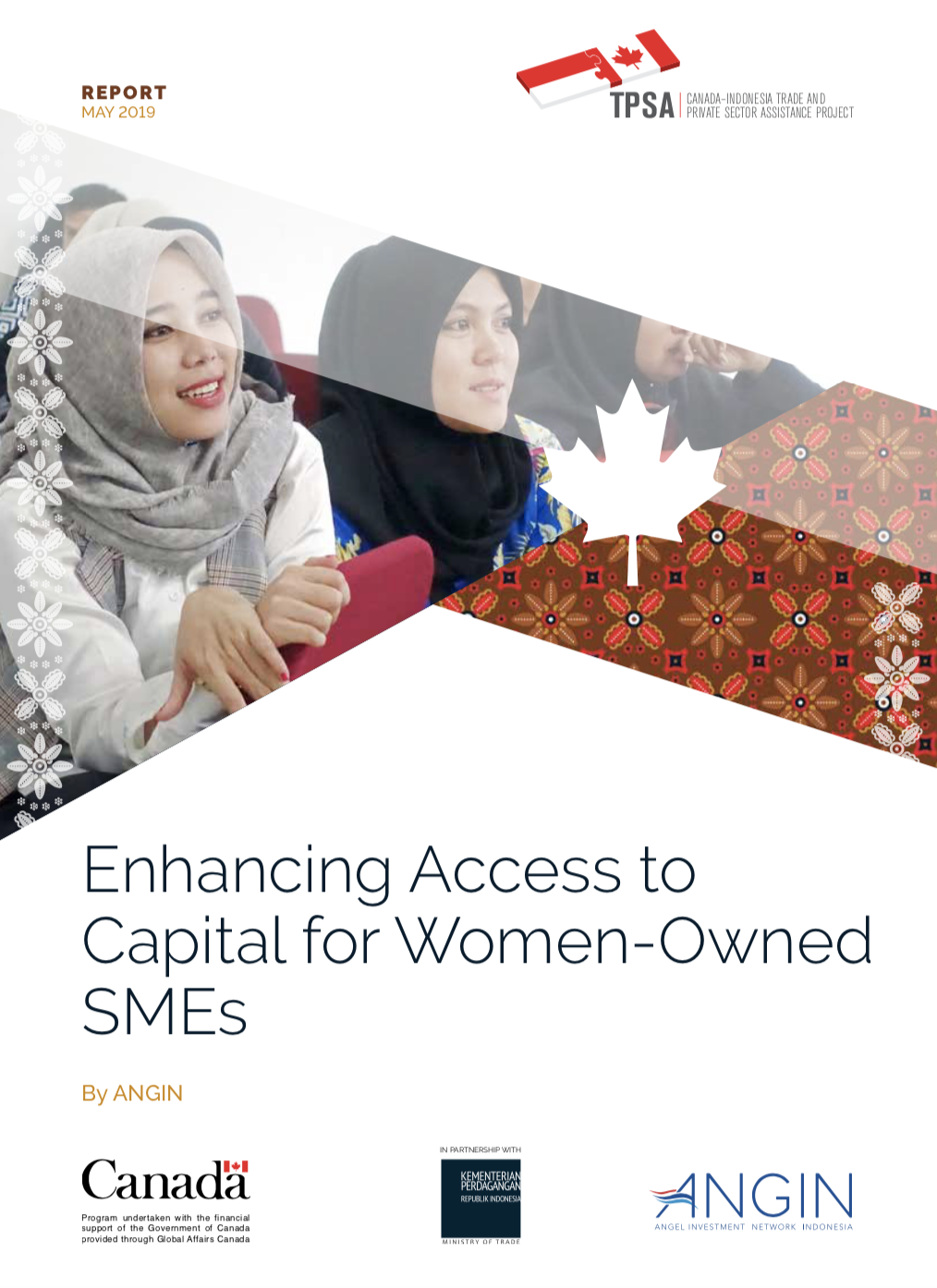The TPSA report Opening the World of Trade to Women: How Gender Affects Trade Benefits for Indonesian SMEs revealed that access to capital is a major constraint faced by both women- and men-owned small and medium-sized enterprises (SMEs) in the three industries of TPSA focus: footwear, apparel, and coffee.
SMEs need additional capital to purchase imported raw materials, hire additional labour, rent or buy a larger storage facility, or obtain new equipment. Those working in the footwear and apparel industries see an increased need for capital when demand for their products rises during major holidays, while SMEs and cooperatives in the coffee industry need extra capital during harvest season when demand for additional labour is highest, or to purchase raw coffee beans from farmers who must be paid in cash.
For women-led SMEs, these financial constraints are compounded by their double burden (dual responsibility for home and business) and the societal expectation for them to obtain spousal permission before undertaking activities (whether personal or business-related) outside of the home. The report also noted that the supply side of capital in Indonesia contributes to SMEs’ financial constraints. Stringent lending requirements by commercial banks (including high interest rates, huge collateral requirements, and inflexible repayment schemes) discourage women-led SMEs from borrowing.
Consequently, they borrow from informal sources such as family, relatives, or friends, and such financing is often inadequate, especially for those exporting or planning to export. Women-led SMEs need to know what financial service providers (FSPs) offer and how to access financial products and services that are responsive to their needs and compatible with their repayment capacity. TPSA aims to help women-led SMEs access information about financial products and services by facilitating connections with FSPs. For this purpose, TPSA partnered with the Angel Investment Network Indonesia (ANGIN) to hold a series of workshops on access to capital. At these workshops, FSPs introduced their financial products and services to women-led SMEs from the three industries and some of the SMEs pitched their businesses to the FSPs. Three workshops were held: the first in Bandung (West Java) on November 22, 2018; the second in Solo (East Java) on December 12, 2018; and the third in Takengon (Aceh) on January 16, 2019. The workshops in Bandung and Solo were aimed at SMEs in the apparel and footwear industries, while the workshop in Takengon was tailored to SMEs in the coffee industry.
About ANGIN
ANGIN (Angel Investment Network Indonesia) supports Indonesia’s economic development by investing in the next generation of entrepreneurs and bringing best-in-class practices to Indonesian early-stage investment. More than an investment platform, ANGIN designs impactful services to build the entire entrepreneurial ecosystem and acts as a bridge to connect and facilitate investors and entrepreneurs along the entire investment process.
About the TPSA Project
The Canada–‒Indonesia Trade and Private Sector Assistance (TPSA) project is a five-year, $12-million project funded by the Government of Canada through Global Affairs Canada. The project is executed by The Conference Board of Canada, and the primary implementation partner is the Directorate General for National Export Development, Indonesian Ministry of Trade.





